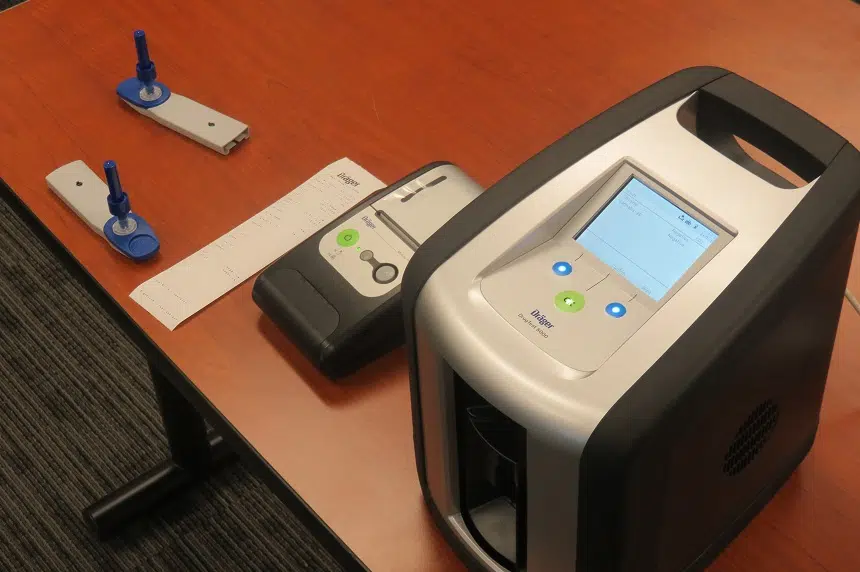Saskatoon police are joining other cities across Saskatchewan in rolling out a new roadside drug testing machine that will be able to confirm whether there is cannabis or cocaine in a driver’s system.
A single Drager DrugTest 5000 machine will be deployed at check stops by officers within the next two to four weeks. It gives police another tool for catching impaired drivers.
The test takes approximately four minutes, with police handing a stick with a saliva collection tube on the end to the driver. Once enough saliva is collected, the sample is placed in the machine where it’s tested for the presence of cannabis or cocaine.
The machine doesn’t determine how much of the drug is in someone’s system, only displaying a “positive” or “negative” result for each substance.
“Tests like this … aren’t meant to prove impairment,” Staff Sgt. Patrick Barbar told reporters at a demonstration of the system Thursday.
“They’re meant to prove presence.”
He noted a positive result would lead to more evaluations from police drug recognition experts – including a field sobriety test and a potential blood test at the station.
Staff Sgt. Patrick Barbar explains, and SGI spokesperson demonstrate the test (she was negative on both). #yxe pic.twitter.com/hItouLaLy7
— Chris Vandenbreekel (@Vandecision) January 24, 2019
The Drager system is already being used by other police services across Canada, as well as in Australia and other jurisdictions.
Police services in Saskatoon, Regina, Prince Albert, Moose Jaw, Estevan and Weyburn will all be getting one, while nine have been provided to the province’s RCMP.
Barbar said like all machinery, the new system might have difficulty working in colder temperatures – which is why it will be kept in a warm police vehicle.
SGI spokesperson Tyler McMurchy called it a “new weapon” in the fight against impaired driving.
“It’s never been a worse time to be an impaired driver,” he said.
“It’s never been harder to get away with it.”
The portable device has been tested several times by police officers since the $6,000 system was provided to the service by the federal government.
But Barbar said there haven’t been any surprises.
“No false positives, everyone still has a job.”











